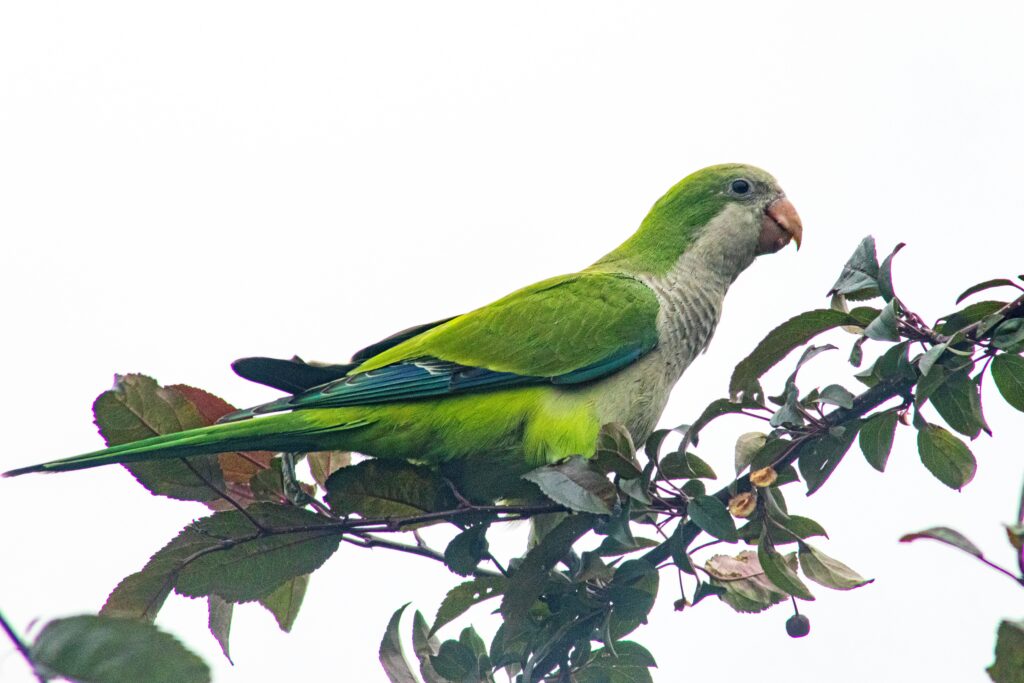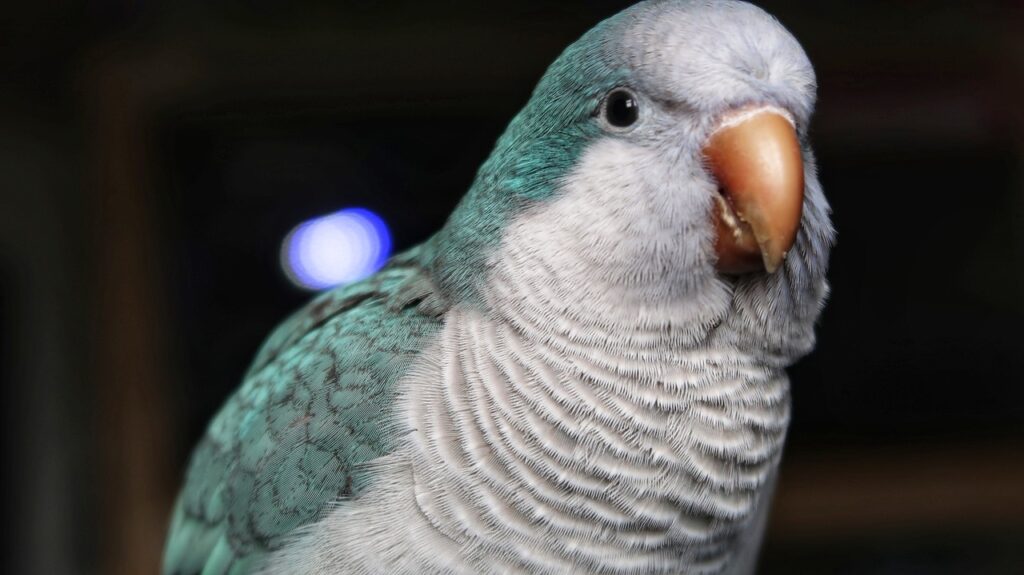As our beloved pets age, one question often remains unanswered is: “How Long Does a Quaker Parrot Live?” These feathery companions possess charming personalities and vibrant plumage; we will explore the intricacies of their lifespan in this article and provide insights into its influencers so you can ensure the longest and healthiest life for your Quaker parrot companion.
Understanding Quaker Parrots:
Quaker parrots (Myiopsitta Monachus) are small parrots popularly recognized for their bright green feathers, vibrant personalities, and impressive intelligence. Though native to South America, these beautiful birds have become beloved favorites among avian enthusiasts around the world.

How Long Does a Quaker Parrot Live?
Quaker parrot lifespan is of great interest to anyone considering adding one into their home. On average, these birds live 20-30 years when kept as pets – a testament to the joys of owning one! But several factors can impact this timeframe such as environment or nutrition.
Diet and Nutrition:
Proper nutrition is vital to the well-being and longevity of Quaker parrots. They thrive on a diet rich in seeds, fresh fruits, and vegetables; essential vitamins and minerals must also be provided through this balanced diet in order to ensure their overall well-being.
Healthcare:
Regular veterinary visits and vaccinations can help detect diseases early, helping your Quaker parrot live a longer and happier life. Routine visits provide invaluable opportunities to detect any health concerns early and address them immediately for maximum longevity.
Social Interaction:
Quaker parrots are highly social birds that require regular interaction, mental stimulation, and physical exercise to remain happy and healthy. Ignoring their social needs may lead to stress and a shorter lifespan. Spending quality time playing and interacting with your Quaker parrot is both enjoyable for you and essential to their wellbeing.
Safe Environment:
Establishing a safe and spacious living environment for your Quaker parrot is essential. Be wary of potential hazards such as toxic plants, open windows or other pets who could pose threats; creating an inviting home environment will promote their happiness and health throughout their lifetime.
Genetics:
Genetics plays an integral part in a Quaker parrot’s lifespan. Some birds may have genetic predispositions towards certain health concerns while others can be more robust. While genetics is beyond your control, understanding your bird’s lineage can offer insight into potential health concerns that could require attention and help provide appropriate care.

Reproduction and Life Stages:
Quaker parrots reach sexual maturity around 1 to 2 years of age and their reproductive years can have serious ramifications on their health; to protect both parents and offspring it is imperative that responsible breeding practices are followed during this period. Breeding Quaker parrots responsibly is essential if breeding them responsibly is your intention – breeding responsibly with ethical breeding practices will only benefit both parties involved!
Factors Affecting Lifespan:
Environmental Enrichment
Quaker parrots are beloved companions, known for their playful and intelligent qualities. Enriching their environment with toys, puzzles, and activities can greatly benefit their mental and physical well-being – while simultaneously keeping them entertained and helping prevent boredom-induced behavioral problems
Exercise and Physical Health
Regular exercise is crucial to the physical well-being of Quaker parrots. Flying, climbing, and playing are natural activities that help them remain fit while too little physical activity could lead to obesity and related health issues.
Emotional Well-Being
Quaker parrots are highly social birds that require human interaction for emotional wellbeing. Making sure they feel loved, secure and part of the family is vital in order to promote health and longevity for this breed of parrot. Loneliness or stress may significantly diminish its health or lifespan.
Video Tutorial about Quaker Parrots
Conclusion:
In conclusion, Quaker parrots have an extraordinary life journey. On average, their lifespan lasts 20-30 years but can be extended further with proper care, nutrition and attention to their wellbeing.
Provide a loving and safe environment, meet their social and physical needs, and stay aware of potential health concerns to enjoy decades of companionship from your Quaker parrot. So embrace their incredible journey as part of your own.
Remember, love and care from you is key to giving your Quaker parrot a long and fulfilling life. Cherish each moment shared together; that way you’ll have someone that will bring light into your day for many years ahead!
FAQs about Quaker Parrots
FAQs:
Q1. Can a Quaker parrot live longer than 30 years?
While the average lifespan of a Quaker parrot is 20 to 30 years, exceptional cases of birds living beyond 30 years have been documented. These cases often result from exceptional care, genetics, and a healthy lifestyle. With dedication and proper care, your Quaker parrot could enjoy a long and fulfilling life.
Q2. How can I provide mental stimulation for my Quaker parrot?
You can provide mental stimulation through interactive toys, puzzles, and spending quality time with your bird. Enrichment activities like foraging toys and teaching them new tricks can also keep their minds sharp. Mental stimulation is not only important for their cognitive health but also for preventing boredom and related behavior issues.
Q3. Are there any specific health issues common to Quaker parrots?
Quaker parrots are prone to health issues such as obesity, respiratory problems, and beak and feather disease. Regular vet check-ups, a balanced diet, and maintaining a clean environment can help prevent these issues. Understanding the potential health concerns specific to Quaker parrots and taking proactive steps can significantly extend their lifespan and well-being.
